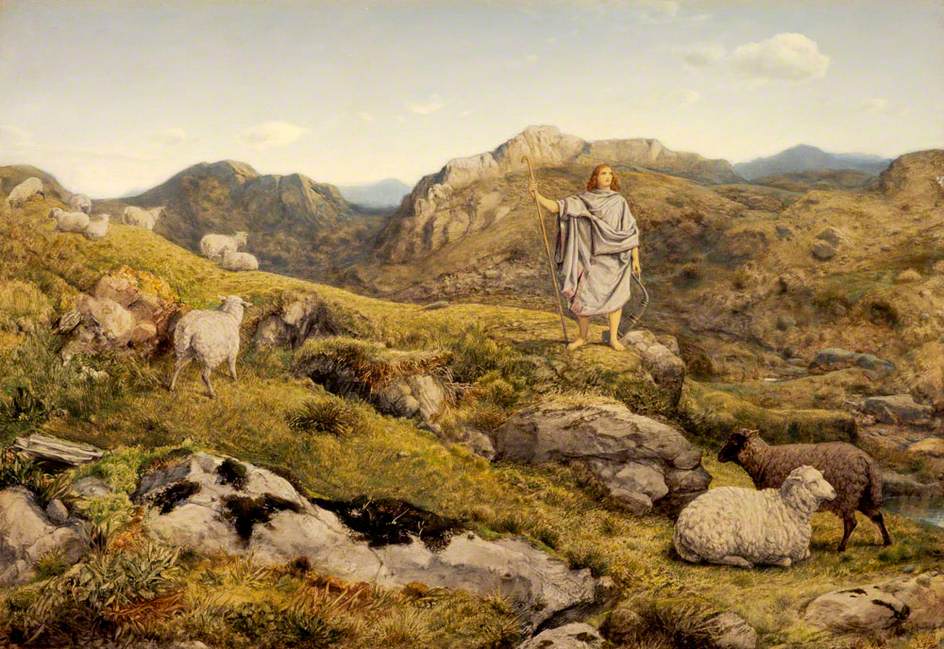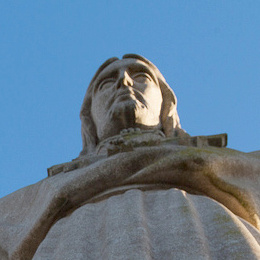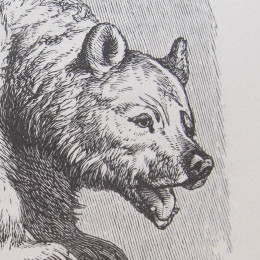King David – eco-poet
David was a man of contrasts and often contradictions: shepherd boy and powerful King; mighty warrior and sensitive poet; saint, sinner and song-writer. I want to suggest adding nature-poet and eco-theologian to that list. Whilst there’s much scholarly debate about the Davidic authorship of the Psalms, I’m taking the canonical line here, working on the assumption (as both Old and New Testaments do) that the 73 Psalms attributed to David and possibly some of the un-attributed ones were either by him personally, or from a Davidic ‘school’ which reflected his views.
One striking thing about the Psalms attributed to David is the nature writing they contain. Here are just a few:
- Psalm 8 – The two main sections contrast the cosmic insignificance of human beings (2–4) with God’s amazing choice of humanity to look after creation (5–8). They are bracketed by declarations of God’s majesty throughout creation (vs. 1, 9), It’s a very contemporary psalm, as space telescopes and satellites reinforce how marginal we are, and yet atmospheric physics and conservation biology keep reminding us that we are wrecking the one planet that we know can sustain life. When will we truly worship God by allowing creation to thrive in all its diversity?
- Psalm 19 – God’s words in creation (vs. 1–6) and God’s words in revelation through scripture (vs. 7–11). Both are necessary to understand who God is, creation inspiring awe and wonder, scripture bringing wisdom, joy and light.
- Psalm 24:1 – ‘The earth is the Lord’s, and everything in it, the world, and all who live in it.’ King David proclaims that the world doesn’t belong to monarchs or nations (and today we should add multi-national corporations). Every part of it is God’s – the mineral rights, the water, soil, air, every animal, plant and each human being. It’s a profoundly political and economic manifesto, radically different to today’s values. Dare we live by it?
- Psalm 36:5–6 – God’s righteousness and justice, like the awesome skies, mountains and oceans, lead him to care protectively for ‘both people and animals’. It’s not an either-or choice: development or conservation. If God can care for both, so can we.
- Psalm 42 – The shepherd-King, who learned about God and nature in the wilds of a semi-arid landscape, compares a thirsty deer, perhaps chased by hunters, to the spiritual thirst of a person desperate for more of God.
- Psalm 65 – God’s provision in creation, including his care for the land (v. 9) and the gift of rain (vs. 9–10), enabling meadows and valleys to shout and sing (vs. 12–13).
- Psalm 145:9 ‘The Lord is good to all; he has compassion on all he has made.’ Once again, the Psalmist declares God’s goodness to all creation and his loving mercy and compassion for humans alongside all his other works.
The glaring omission from this list is Psalm 104, the most complete and beautiful nature poem in the Psalms, and quite probably in all ancient literature. It’s only missing because it’s not attributed to David. However it appears to be in direct continuity, in language and style, with Psalm 103 (which is ascribed to David) and more significantly it picks up on the nature themes in the other Davidic Psalms. Whilst Psalm 103 praises God for his acts in history and his compassion towards people, in Psalm 104, humans are but one amongst the many recipients of God’s love and care. Even the lions, which David hunted in his youth and which his culture would have seen as threatening, look to God to provide their food (vs. 21–22). The night belongs to them as much as the day belongs to people and other animals.
The Davidic Psalms are neither romantic urban musings nor tree-hugging eco-spirituality. They are the product of a mature faith in God, rooted in scripture, experience and nature. God is Creator, Sustainer and Saviour not just of people but of all creatures. The Psalms balance a faith that is intensely personal, wondering at how God forms us in our mother’s wombs (Psalm 139) and loves and forgives us despite our frequent failings and inconsistencies (Psalm 51), with a knowledge that God’s interests are much wider than our individualistic concerns but include the whole of creation. The church needs more songs and poems like these!
We are happy for our blogs to be used by third parties on condition that the author is cited and A Rocha International, arocha.org, is credited as the original source. We would be grateful if you could let us know if you have used our material, by emailing [email protected].





This is great stuff from an A Rocha person. I have met you, Dave, with A Rocha Auckland, New Zealand, and want to add this. I write on Care of Creation in our Diocese and keep reminding people of how much more the telescope and the microscope have shown us, and of tiny creatures in the sea and in the soil that affect everything. King David includes all life in what he says, and we too can marvel at the things we are discovering. What I read into it is that God is now showing us so many things which can help us into the new world of clean renewable energy and understanding more of how things work. God, having made these things, has known about them all the time, but showing them up now is one ore proof of His continuing care. Jim Hunt.
I love this comment almost as much as I love the blog post itself! So brilliant to hear Christians engaging with all this.
I love the Psalms. In the Psalms David shares so much of human emotion and feeling. As you share, the Psalms also teach us how to see the world and creation. Given the beauty of wonder of God’s creation, it only seems right that we should take care of it.
For myself, I also love that the Psalms are essentially prayers. They teach me how to speak to and relate to God. These Psalms remind me that creation should be part of my conversation with God.
Dear Dave
Thank you so much for your article. I will share it to my community.
Thanks Jim and Joanna for your encouragement, and for your work in New Zealand and in Sheffield! It’s great to see Christians around the world working and praying together on caring for God’s world.
Wonderful to hear from you! Blessings on all your work in Myanmar!